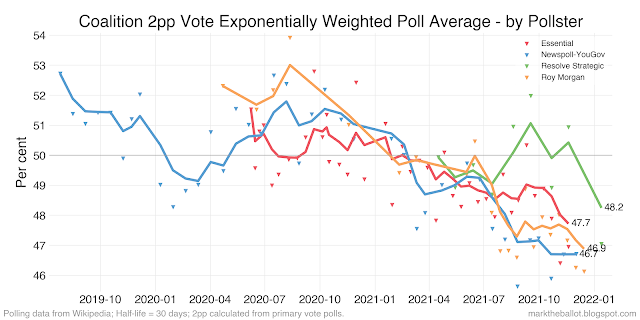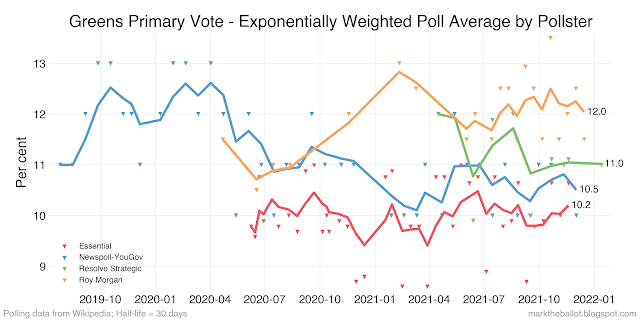The January 11-15 Resolve Strategic (RS) poll was published in the Fairfax press on Tuesday this week. It was significant for two reasons:
- Up until this poll, RS had been fairly supportive of the Coalition. This poll places it more in line with the other pollsters suggesting that Labor has a significant lead in the polls this election year.
- It found very high support for the non-mainstream parties.
RS does not publish a two-party preferred estimate. Based on 2019 preference flows, I estimate this poll as 47-53 in Labor's favour. The next two charts aggregate the polls using an exponential weighted average with a 30 day half-life for the individual polls. After that I have my usual state-space model aggregation of the two-party preferred voting intention. This Bayesian model assumes that the voting intention on any day is much like the day before (i.e., it behaves like a Gaussian random walk), and that the individual systemic pollster biases sum to zero (or cancel each other out).
In terms of the primary votes, RS has a substantially higher other party vote than the other pollsters. It also has a much lower vote for Labor. RS is much closer to the other pollsters in terms of the Greens and somewhat closer with the Coalition. The stark differences between pollsters on the primary votes is something I find a little uncomfortable.

Updated primary vote poll aggregations follow.










excellent work as usual
ReplyDelete